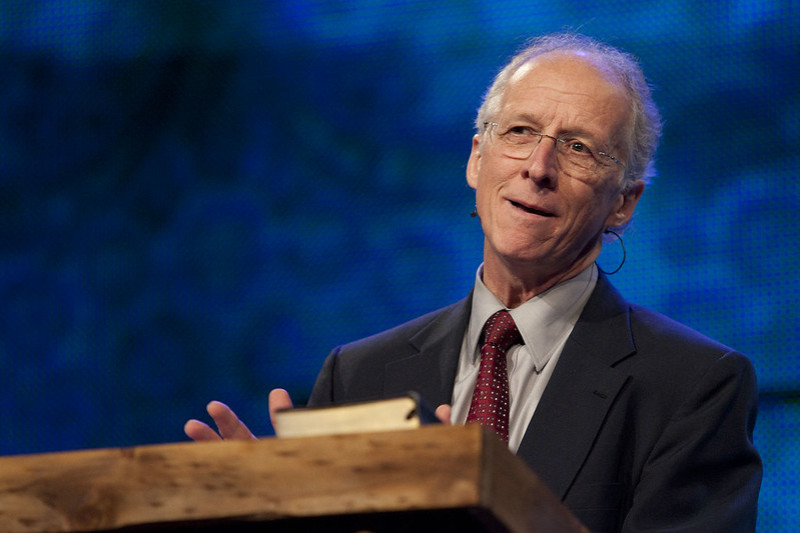
In a recent podcast episode posted on Desiring God, the well-known theologian and pastor John Piper answered a question about what hyper-Calvinism is and how can Calvinism go wrong.
The message came out from a recent accusation of his ideas in his new book, 'Coronavirus and Christ'.'
Pastor John emphasized that hyper-Calvinism is the "distortion" of historic Calvinism. Hyper Calvinism says that it is inappropriate and unbiblical to invite people to Christ unless they give some evidence of being among the elect.
"This is falsehood," Piper denied hyper-Calvinism clearly. "' Don't go out there and preach the gospel indiscriminately to those pagans. You might tempt somebody to embrace the gospel when they're not elect.' That's hyper-Calvinism," he explained.
The pastor said that hyper-Calvinism came out of the emphasis that is put so completely on the unconditional election of God and the spiritual state of death of man and the sovereignty of grace in conversion which are all true.
However, this irrational and unbiblical inference is drawn that we should not preach repentance and invite any non-elect person to Jesus.
"We should never preach like that. We should never indiscriminately say to a whole crowd of people, many of whom would be non-elect, "Come to Christ. Repent. Believe," He emphasized.
"Our job is not to know ahead of time who the sheep are but to preach the unreachable riches of Christ, pray for converting power, and plead for people to repent and trust God- trust him to do his regenerating power," Piper clarified.
In addition, the theologian warned another contemporary form of hyper-Calvinism that is common among some Reformed groups. "Just like the old hyper-Calvinism was hesitated to offer gospel salvation to someone who might not be elect, so this contemporary form of hyper-Calvinism is hesitant to offer gospel assurance to professing Christians who might not be elect."
Contemporary hyper-Calvinism is the case when a good concern of giving false assurance to possibly fake Christians becomes a hyper-concern of withholding true assurance from real Christians. It is against the tone of Romans 8, which is so bold in the assurance of glorification in Christ according to Piper.
Lastly, John Piper gave the best way to avoid those two forms of hyper-Calvinism as "Bible, Bible, and Bible". With that answer, he suggested several key questions, that can examine one's doctrine including himself.
- Does Piper silence important biblical teachings by his Calvinism?
- Does he silence the responsibility of man?
- Does he silence the reality of secondary causes, like Satan and sinful man, in the suffering and sin of the world?
- Does he silence the reality of the Holy Spirit and that the Holy Spirit can be grieved, or that Jesus wept over Jerusalem?
- Does he silence the biblical reality that we should hold our hands out to a world bent on destruction and plead with them with tears to repent?
While denying the two forms of hyper-Calvinistic ideas, Pastor John still puts emphasis on the Biblical understanding of Calvinism.
"The modern world operates with the philosophical assumption that human willpower has the capacity for ultimate, final, decisive self-determination in the moment of conversion to Christ," "Not philosophy, not assumptions, not the modern American love affair with free will. No, no, no. Bible, Bible, Bible - not modern assumptions, not the darling of human self-determination in conversion, but Bible: the whole counsel of God in biblical proportion."



















